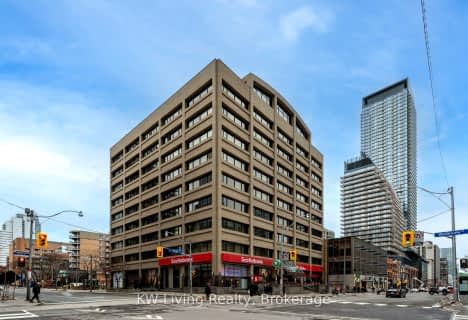Church Yonge Corridor Real Estate, Toronto
Refine your Church Yonge Corridor real estate search by price, bedroom, or type (house, townhouse, or condo). View up-to-date MLS® listings in Church Yonge Corridor.
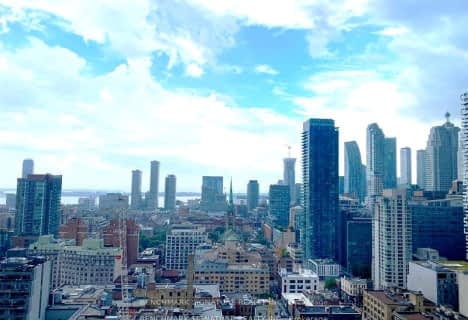
- 2 bed
- 2 bath
- 600 sqft
#2802-77 Shuter Street, Toronto, Ontario • M5B 0B8 • Church-Yonge Corridor
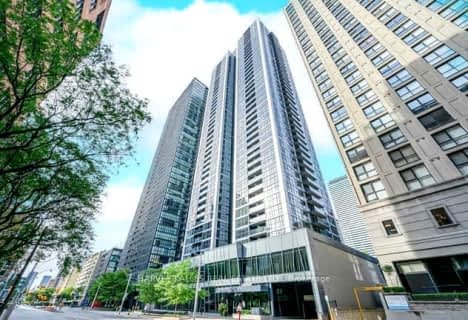
- 1 bed
- 1 bath
- 500 sqft
403-28 Ted Rogers Way, Toronto, Ontario • M4Y 2J4 • Church-Yonge Corridor

- 1 bed
- 1 bath
- 500 sqft
1704-197 Yonge Street, Toronto, Ontario • M5B 1M4 • Church-Yonge Corridor

- 1 bed
- 2 bath
- 500 sqft
3001-319 Jarvis Street, Toronto, Ontario • M5B 0C8 • Church-Yonge Corridor

- 1 bed
- 1 bath
- 600 sqft
305-30 Hayden Street, Toronto, Ontario • M4Y 3B8 • Church-Yonge Corridor
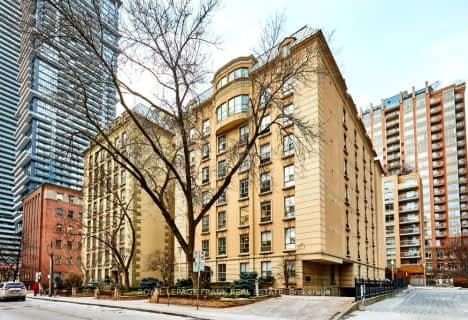
- 1 bed
- 1 bath
- 500 sqft
301-88 Charles Street East, Toronto, Ontario • M4Y 2W7 • Church-Yonge Corridor
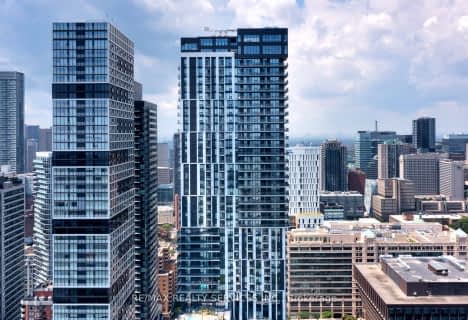
- — bath
- — bed
- — sqft
404-555 Yonge Street, Toronto, Ontario • M4Y 3A6 • Church-Yonge Corridor

- 2 bed
- 1 bath
- 800 sqft
1405-33 Charles Street East, Toronto, Ontario • M4Y 0A2 • Church-Yonge Corridor
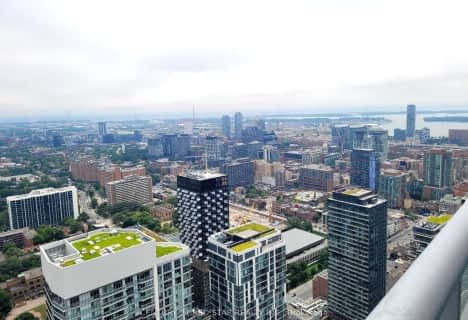
- 1 bed
- 1 bath
PH05-100 Dalhousie Street, Toronto, Ontario • M5B 1E1 • Church-Yonge Corridor

- 1 bed
- 1 bath
- 600 sqft
1605-1 Bloor Street East, Toronto, Ontario • M4W 0A8 • Church-Yonge Corridor

- 1 bed
- 1 bath
- 500 sqft
3314-251 Jarvis Street, Toronto, Ontario • M5B 0C3 • Church-Yonge Corridor

- 2 bed
- 2 bath
- 1200 sqft
3101-25 Carlton Street, Toronto, Ontario • M5B 1L4 • Church-Yonge Corridor

- 2 bed
- 1 bath
- 800 sqft
302-30 Hayden Street, Toronto, Ontario • M4Y 3B8 • Church-Yonge Corridor

- 2 bed
- 2 bath
- 800 sqft
4402-197 Yonge Street, Toronto, Ontario • M5B 0C1 • Church-Yonge Corridor

- 1 bed
- 1 bath
1405-100 Dalhousie Street, Toronto, Ontario • M5B 0C7 • Church-Yonge Corridor

- 1 bed
- 1 bath
- 700 sqft
203-1 The Esplanade, Toronto, Ontario • M5E 0A8 • Church-Yonge Corridor

- 1 bed
- 1 bath
- 500 sqft
2204-3 Gloucester Street, Toronto, Ontario • M4Y 0C6 • Church-Yonge Corridor

- 2 bed
- 2 bath
- 1000 sqft
2901-35 Hayden Street, Toronto, Ontario • M4Y 3C3 • Church-Yonge Corridor

- 1 bed
- 2 bath
- 600 sqft
2408-100 Dalhousie Street, Toronto, Ontario • M5B 0C7 • Church-Yonge Corridor

- 1 bed
- 1 bath
- 500 sqft
907-81 Wellesley Street East, Toronto, Ontario • M4Y 1C5 • Church-Yonge Corridor
- — bath
- — bed
- — sqft
4302-1 Bloor Street East, Toronto, Ontario • M4W 1A9 • Church-Yonge Corridor


